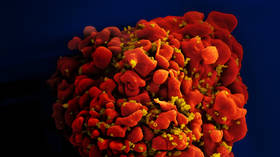Scientists reveal how long Covid-busting cells can last after infection

On Wednesday, the University of Zurich published the findings of their recent study into long-lasting immunity against Covid-19. The research highlights the important role T-cells play in fighting off Covid-19; the scientists found that the virus-busting immune cells can remain in the body for a year after beating off an infection.
The research of Onur Boyman, head of the Department of Immunology, and his team at the University of Zurich and the University Hospital of Zurich, also provides useful insights into how and when immune cells develop into so-called memory T-cells.
Boyman notes that B-cells – a type of white blood cell responsible for producing antibodies – are insufficient to effectively protect against Covid-19 and that virus-specific CD8+ T-cells play a crucial role, identifying and killing the cells that have been infected.
But while these CD8+ T-cells normally disappear quickly after they are active, Boyman and his team tracked these immune cells from the time of infection to up to one year after recovery.
“When it comes to establishing long-term protective immunity, it is important to generate long-lived memory T-cells that are activated very quickly upon re-exposure to the virus,” Boyman explained in a press release.
The research also claims that these CD8+ T-cells could be distinguished from their short-lived counterparts at an early stage.
The university asserted that their research helps unravel the complex response of the immune system to Covid-19. It adds that, despite infection, some patients may not develop this long-lasting immunity to the virus.
It had previously been suggested that low levels of hospitalization in the UK were down to comparatively high usage of the AstraZeneca vaccine, which is understood to engender a more pronounced T-cell response than other shots. This theory has been dismissed by some scientists.













